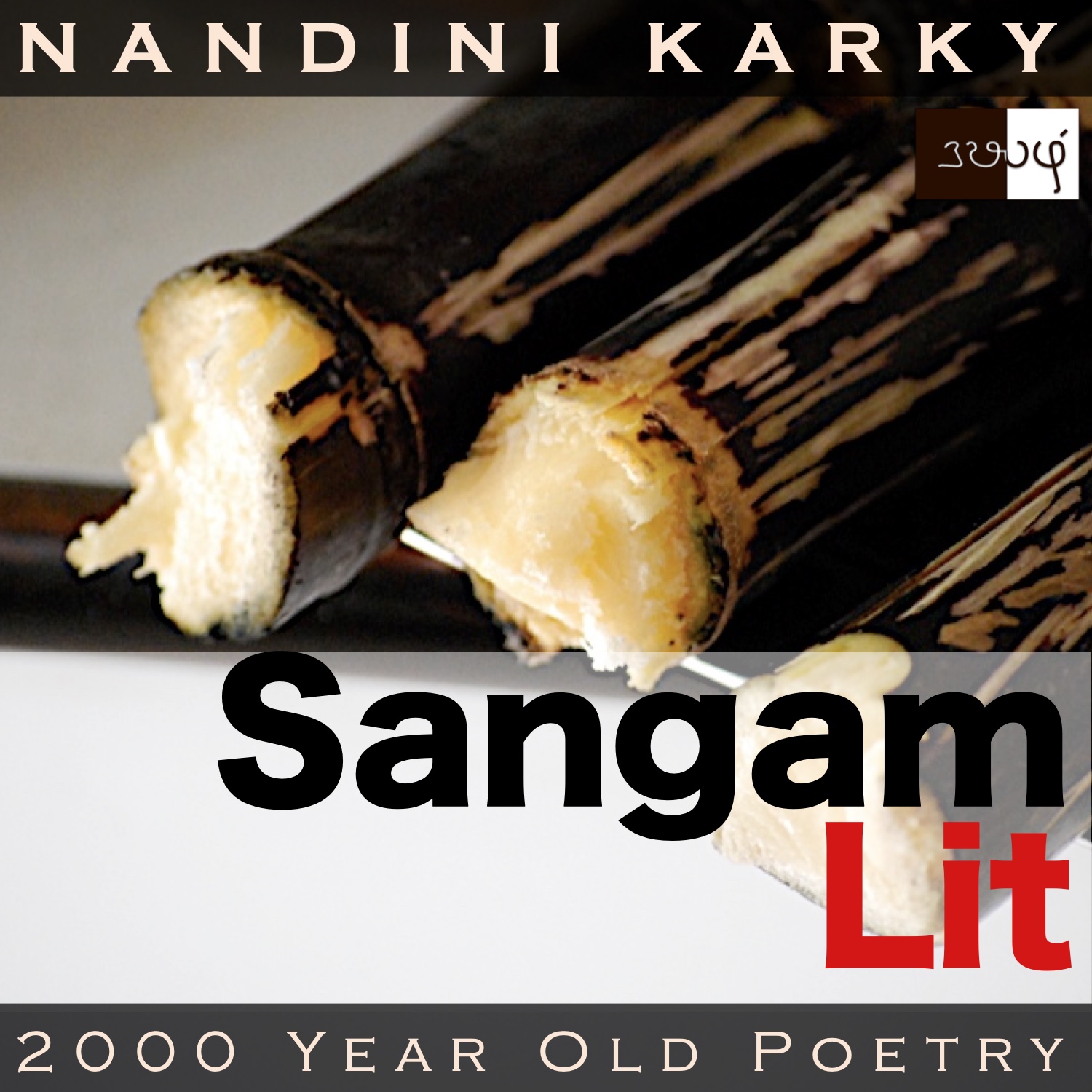Podcast: Play in new window | Download
Subscribe: Apple Podcasts | Spotify | Amazon Music | Android | iHeartRadio | TuneIn | RSS | More

In this episode, we perceive the final decision of a scale shifting between youth and wealth, as portrayed in Sangam Literary work, Kurunthogai 267, penned by Kaleri Kadigaiyaar. The verse is situated in the drylands of ‘Paalai’ and speaks in the voice of the man to his heart, in response to its insistence that he part away to gather wealth.
இருங் கண் ஞாலத்து ஈண்டு பயப் பெரு வளம்
ஒருங்குடன் இயைவதுஆயினும், கரும்பின்
கால் எறி கடிகைக் கண் அயின்றன்ன
வால் எயிறு ஊறிய வசை இல் தீம் நீர்க்
கோல் அமை குறுந் தொடிக் குறுமகள் ஒழிய,
ஆள்வினை மருங்கில் பிரியார் – நாளும்
உறல் முறை மரபின் கூற்றத்து
அறன் இல் கோள் நன்கு அறிந்திசினோரே.
‘A duel between death and youth’ can be witnessed in this one. In the opening words ‘இருங் கண் ஞாலத்து’ meaning ‘the widespread world’, we see an expansive view that takes in the entire earth in its glance. Next, we relish a delectable mention in ‘கரும்பின் கால் எறி கடிகை’ meaning ‘the cubes of sugarcane cut from the sweet end’, a term so striking that it becomes the name of this song’s poet, his real name being lost in time. The phrase ‘வால் எயிறு ஊறிய வசை இல் தீம் நீர்’ meaning ‘the sweet water that secretes in the shining teeth’ is a fancy way of referring to saliva! There’s a portrait of the inevitable end in every life in ‘கூற்றத்து அறன் இல் கோள்’ meaning ‘the unfair killing of the lord of Death’. Ending with the words ‘நன்கு அறிந்திசினோரே’ meaning ‘those who know well’, the verse invites us to do just that!
Connecting these images, would the verse be about death by sugarcane? Let’s delve into the context to understand more. The context reveals that the man and lady were leading a happy, married life, when the man’s heart started badgering him to part with the lady to fulfil his manly duty of earning wealth. Pondering over this, in reply, the man says, “Even if all the great wealth of this vast world are assembled and ready to be taken, they wouldn’t part on account of earning that wealth, leaving behind the young maiden, who wears thick and rounded bangles, and who has flawless sweet waters springing in her mouth, the taste of which is akin to savouring pieces cut off a sugarcane stalk’s sweeter end. They, who know well the unjust ways of Death, which has the task of taking away life in its own order and tradition, will not part away.” With these words, the man informs his heart that he has decided to abstain from leaving his beloved to go in search of wealth.
Time to delve into the nuances. The man starts with a sweeping glance at the whole world around him and asks the listener to consider the case when all the great wealth in every nook and corner was assembled for someone to go earn. Then, he puts in that defining clause, which is ‘even then’. After which he goes on to talk about eating a sugarcane piece that’s cut off from a stalk from the sweeter end, and says that’s how the pure waters in his lady’s mouth tastes. This brings to my mind what a college friend of mine used to call a ‘kiss’. She called it ‘an exchange of spit’ and I remember how we all scolded her with a smile, for spoiling that romantic expression. I think I should call this Sangam reference as my ‘Sugarcane redemption’! Joking apart, this phrase etches the preciousness of being with his beloved as seen by the man’s mind.
Moving on, the man has talked about the lady’s sweet mouth only to say that even if all the wealth in the world was assembled, he shouldn’t leave the lady to gather that wealth. And, then he talks about the ways of Death, which will strike on its own timetable, with no order to who came first and who came later, thereby classifying that as an unjust act of killing. He concludes by connecting that anyone who knows Death and its ways will not part away from the sweetness of youth. In a nutshell, the man is saying, ‘life is short and youth is sweet’ and asking his heart, could there be any point in wasting that?




Share your thoughts...